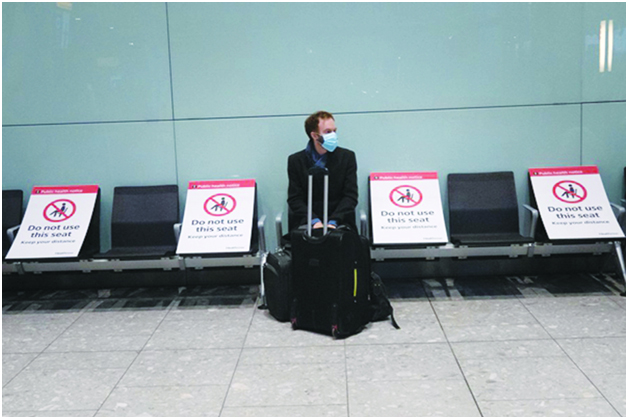The British government on Thursday, January 14, announced its decision to ban arrivals from more than a dozen South American countries and Portugal from Friday following the detection of a new coronavirus variant. British Transport Secretary Grant Shapps tweeted: “I’ve taken the urgent decision to BAN ARRIVALS from ARGENTINA, BRAZIL, BOLIVIA, CAPE VERDE, CHILE, COLOMBIA, ECUADOR, FRENCH GUIANA, GUYANA, PANAMA, PARAGUAY, PERU, SURINAME, URUGUAY AND VENEZUELA — from TOMORROW, JAN. 15 at 4 a.m. following evidence of a new variant in Brazil.” “Travel from PORTUGAL to the UK will also be suspended given its strong travel links with Brazil, acting as another way to reduce the risk of importing infections. However, there is an exemption for hauliers travelling from Portugal (only), to allow transport of essential goods.” “This measure does not apply to British and Irish Nationals and third country nationals with residence rights — but passengers returning from these destinations must self-isolate for TEN DAYS along with their households,” he added. The new ban was announced after a meeting of senior British government officials on Thursday, Jan 14, the BBC reported. British Prime Minister Boris Johnson on Wednesday told MPs in the House of Commons, lower house of parliament, that the government was “concerned” about the new virus variant detected in Brazil.
“We already have tough measures… to protect this country from new infections coming in from abroad,” he said. In December 2020, Britain has suspended flights from South Africa after a discovery of a new and concerning variant there. Johnson said there were “lots of questions” over the latest variant, including whether it is resistant to COVID vaccines. At present, experts are uncertain how effective existing vaccines will be against the new variant, the Evening Standard newspaper reported.
Patrick Vallance, the British government’s top scientist, told ITV that the new variant contains “a change of the genetic code, at position 484, and that changes a part of the protein, it changes a bit of a shape of the protein”. He said that there is no evidence new variants are more deadly. The latest development came as another 1,564 have died within 28 days of a positive test, the highest daily death toll since the pandemic began in the country, according to official figures released Wednesday. The total number of coronavirus-related deaths in Britain now stands at 84,767, the data showed. Another 47,525 people in Britain have tested positive for COVID-19, bringing the total number of coronavirus cases in the country to 3,211,576, the figures showed. England is currently under the third national lockdown since the outbreak of the pandemic in the country. Similar restriction measures are also in place in Scotland, Wales and Northern Ireland. To bring life back to normal, countries such as Britain, China, Germany, Russia and the United States have been racing against time to develop coronavirus vaccines.
